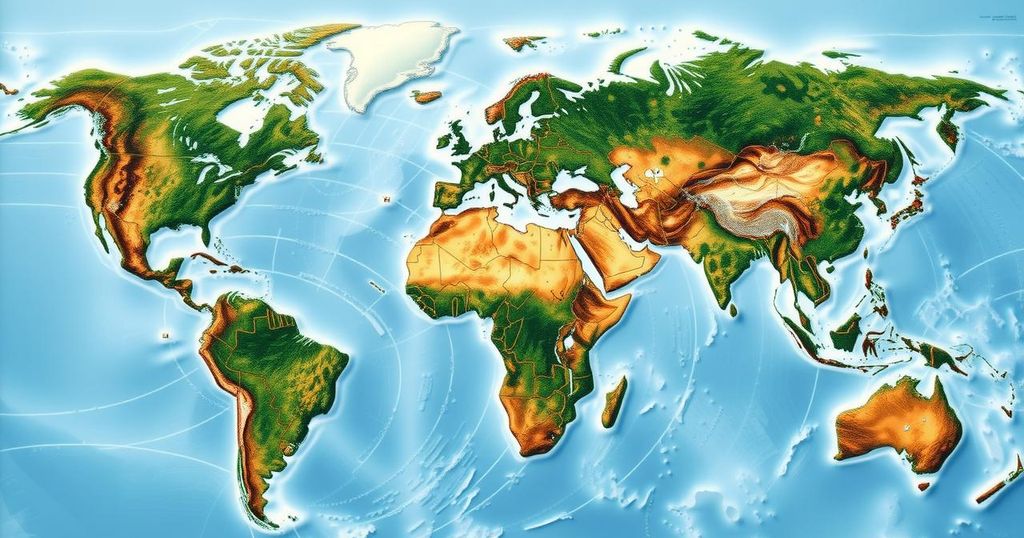2024: Another Record Year for Climate Change Impact and Urgency

The year 2024 is anticipated to be the hottest on record, with rising greenhouse gas levels intensifying climate change impacts. United Nations Secretary-General António Guterres underscored the urgency for immediate global emissions reduction and renewable energy transition. Notable extreme weather events in 2024 highlight the critical nature of climate change adaptation and mitigation efforts. WMO will focus on the cryosphere in 2025, advocating for international collaboration to address escalating climate risks.
The year 2024 is projected to be the hottest on record, culminating a decade marked by exceptional heat attributed to human activities, as reported by the World Meteorological Organization (WMO). Rising levels of greenhouse gases are intensifying global warming, with grave implications for the planet. United Nations Secretary-General António Guterres highlighted the urgency of the situation, stating that we have witnessed a decade of deadly heat, and emphasizing the need for immediate global action to significantly reduce emissions and transition to renewable energy.
As per the WMO, the consolidated annual global temperature for 2024 will be published in January, with a comprehensive report on the state of climate expected in March 2025. WMO Secretary-General Celeste Saulo expressed alarm over the state of the climate, issuing continuous Red Alerts during her tenure. She asserted that achieving a safer planet is a collective and global obligation. “Every fraction of a degree of warming matters, and increases climate extremes, impacts, and risks,” she remarked, underscoring the daily manifestations of climate change through extreme weather events.
The extreme weather phenomena in 2024 included unprecedented rainfall and flooding, which resulted in significant human and economic losses worldwide. “This year we saw record-breaking rainfall and flooding events and terrible loss of life in so many countries,” said Saulo. An initiative highlighting climate risks, named Early Warnings for All, aims to enhance climate resilience, supported by WMO’s Global Greenhouse Gas Watch initiative.
The focus will shift towards preserving the cryosphere in 2025, coinciding with the International Year of Glaciers’ Preservation facilitated by UNESCO and WMO. Noteworthy reports throughout 2024 indicated that climate change has exacerbated 26 out of 29 weather events, resulting in the loss of at least 3,700 lives and the displacement of millions. One report revealed that climate change induced an additional 41 days of hazardous heat in 2024, adversely affecting human health and ecosystems.
In light of the growing frequency and intensity of extreme heat, WMO convened experts from 15 international organizations and various nations to formulate a coordinated response to extreme heat risks. This is part of a broader initiative to safeguard public health and enhance climate services as WMO approaches its 75th anniversary in 2025.
Climate change has emerged as one of the most pressing global challenges, increasingly evidenced by rising temperatures, extreme weather events, and escalating greenhouse gas emissions. The World Meteorological Organization plays a critical role in monitoring these changes and providing vital data that informs global policies and actions against climate change. The projected record temperatures for 2024 signal not only a continuation of this worrying trend but also an urgent need for nations to adapt and mitigate the impacts of climate change. This article draws attention to the collective responsibility of global leaders and organizations to address these threats through cooperative efforts and immediate actions.
In conclusion, the alarming implications of climate change are clear as 2024 is poised to be the hottest year on record, highlighting a concerning trend fueled by human activity. The international community must recognize this urgent situation, as emphasized by key leaders, and act decisively to mitigate emissions and transition towards sustainable energy solutions. Continuous monitoring and coordinated efforts to combat extreme weather events will be imperative as we navigate the evolving climate landscape and strive for a healthier, more resilient planet for future generations.
Original Source: wmo.int






